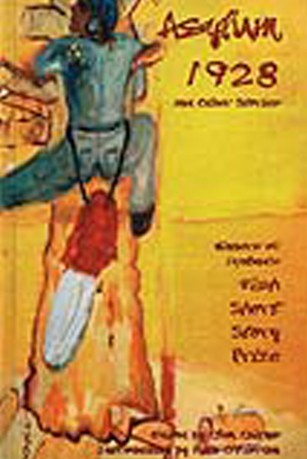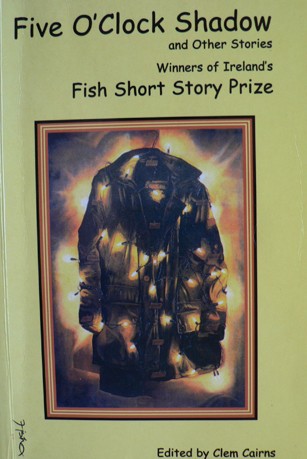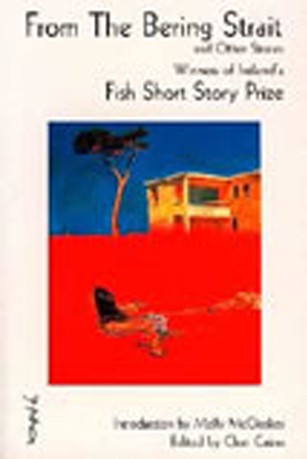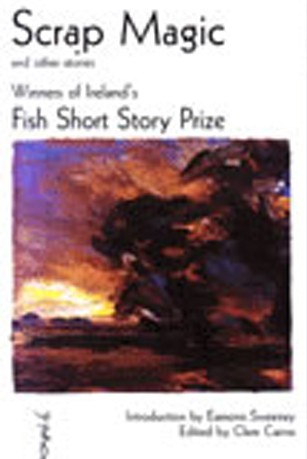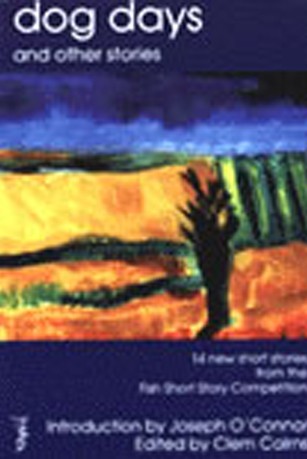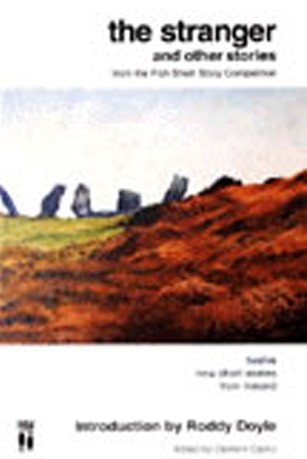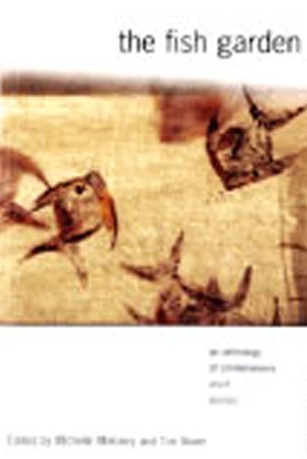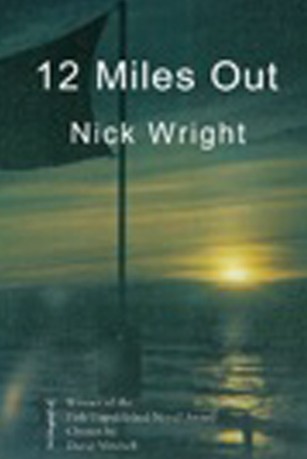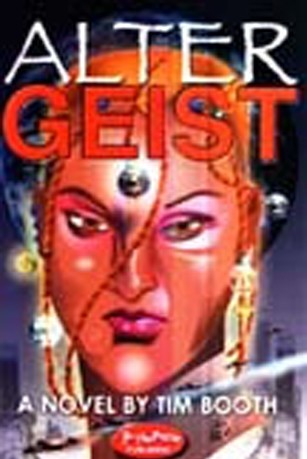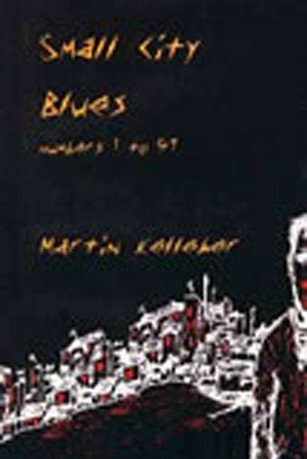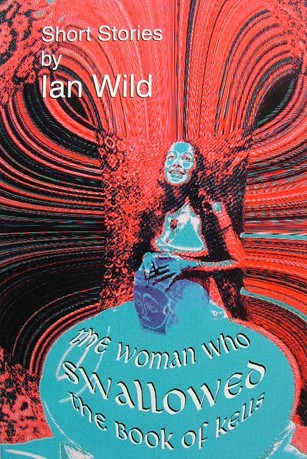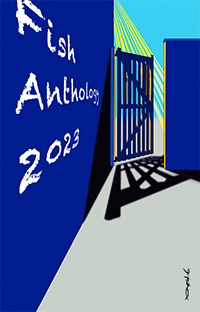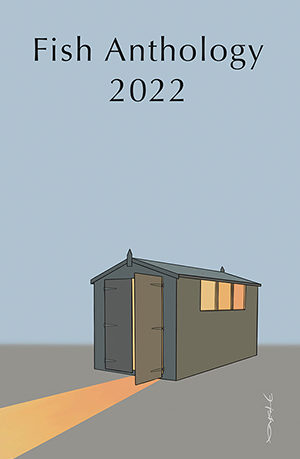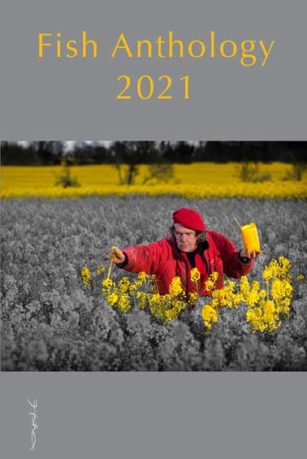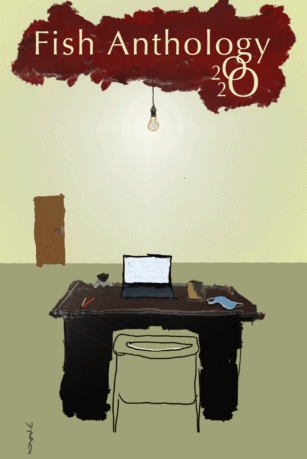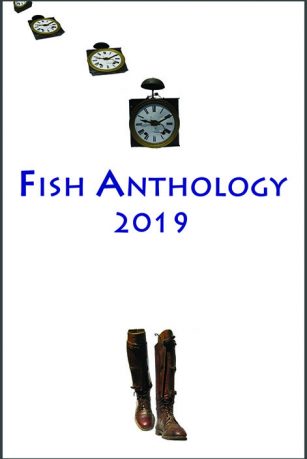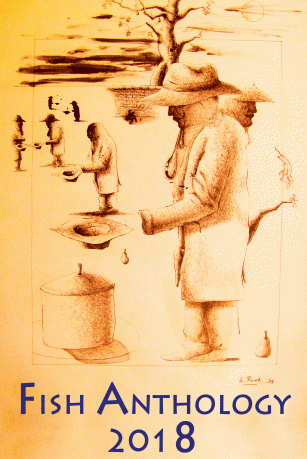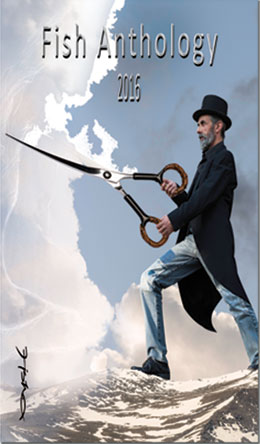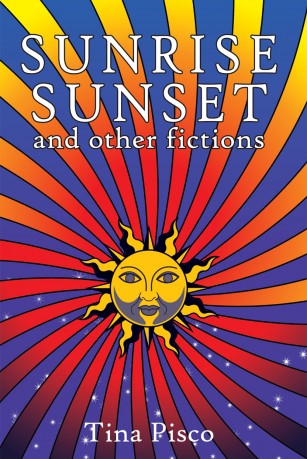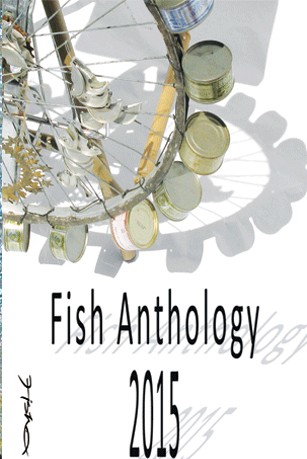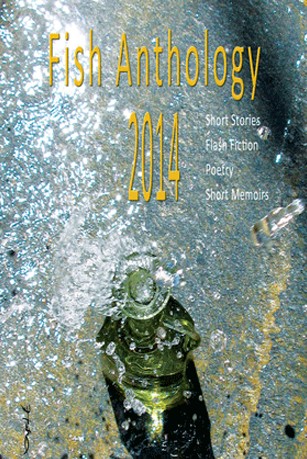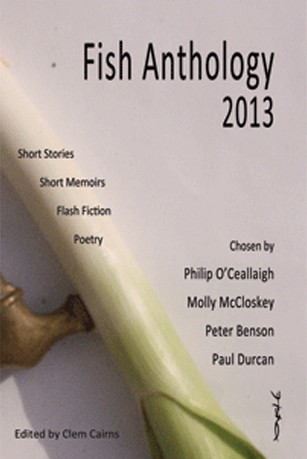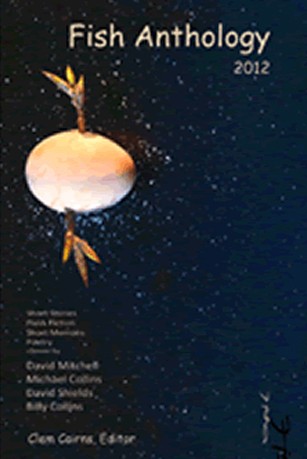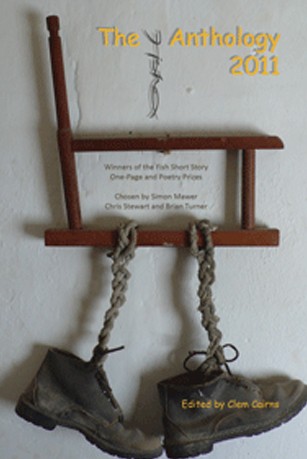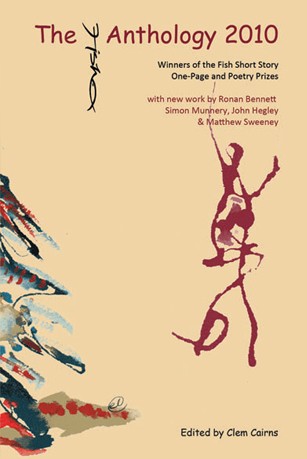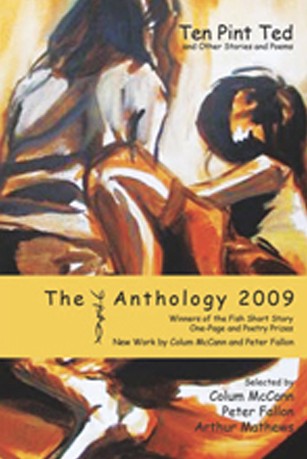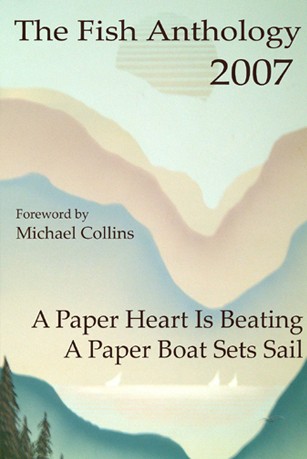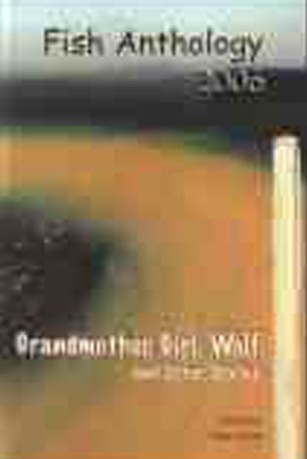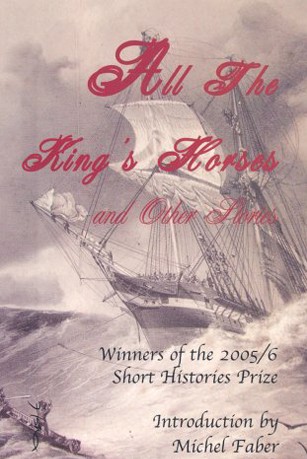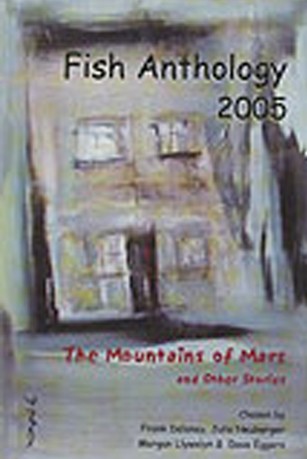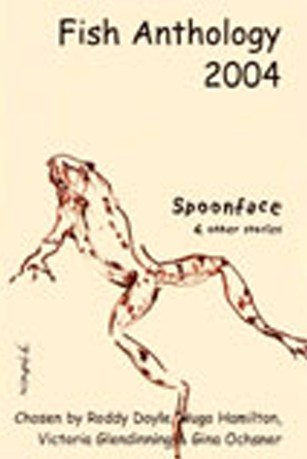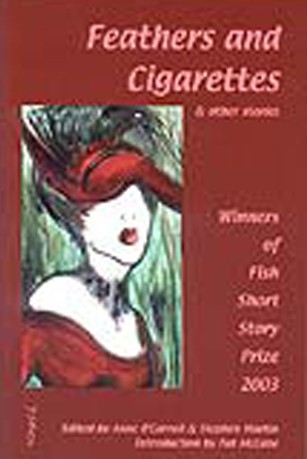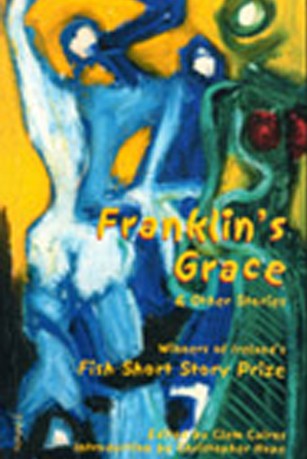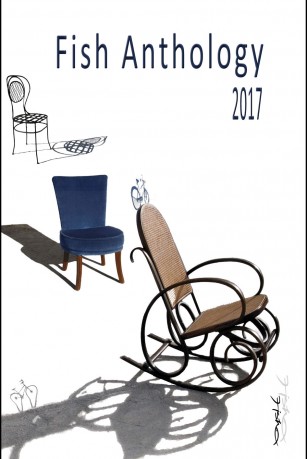
Fish Anthology 2017
Fish Anthology 2017 –
SELECTED BY:
Neel Mukherjee ~ Short Story
Vanessa Gebbie ~ Short Memoir
Chris Stewart ~ Flash Fiction
Jo Shapcott ~ Poetry
Read an excerpt from winning short story – Dead Souls by Sean Lusk
Read winning flash story – Lost by Lindsay Fisher
Read an excerpt from winning memoir – Pay Attention by Paul McGranaghan
Read winning poem –Paris, 13 November 2015 by Róisín Kelly
Introduction
by Clem Cairns
In an age of soundbites and ‘fake news’, where fame and fortune can be attained not by doing but simply by being, the discipline and incentive needed to acquire a skill is undervalued. In spite of this, literature is thriving. Why is it that, at a time when the trivial takes precedent over the profound, there is no shortage of extraordinary talent and innovative forms of expression? Perhaps it is because, as Leonard Cohen put it, “Reality is one of the possibilities I cannot afford to ignore,” and writers explore reality by writing. As Flannery O’Connor observed, “I write because I don’t know what I think until I read what I say.”
Conspiracy theories and ‘alternative facts’ abound. Today’s poets and writers are more challenged than ever to tell their stories, whether fact or fiction, in a way that our minds and hearts can grasp; to touch a place in us that the daily narrative skims over, to hold the lens over things familiar and unfamiliar and to use language in a way that will captivate.
Thank you to those who put pen to paper and entered the Fish competitions. There were many entries that enthralled and entertained and called out to be included but they did not make it into the collection this year. They set the bar high. Judges Neel Mukherjee, Vanessa Gebbie, Chris Stewart and Jo Shapcott had the hard task of choosing out of the stories and poems that reached that bar. Huge thanks to them for their big hearts (their comments on their choices are on the Fish website) and for the time and thought they put into a process that is dedicated to promoting and nurturing writers.
Contents
|
Introductory Note / Acknowledgements |
|
|
|
SHORT STORIES |
|
|
|
Dead Souls |
Sean Lusk |
|
|
Black Toe |
Bron Burgess |
|
|
Undetermined |
Philippa Holloway |
|
|
What Green Tastes Of |
Lindsay Fisher |
|
|
Schoolgirl Crush |
Ruth Lacey |
|
|
Debt Collector |
Neil Bristow |
|
|
Salvage |
Miriam Moss |
|
|
Safe from Harm |
Rick Williams |
|
|
This was Rapture |
David Knight-Croft |
|
|
In the Dark |
Sam Sanders |
|
|
The Adonis Effect |
Roz DeKett |
|
|
FLASH FICTION |
|
|
|
Lost |
Lindsay Fisher |
|
|
Luna |
Peter Jordan |
|
|
Drifting |
Emma Whitehall |
|
|
Ball |
Andrew Peters |
|
|
Slapped Down |
Isobel Hourigan |
|
|
Search for Your Son |
Shubha Venugopal |
|
|
Scrabble |
Helen Bralesford |
|
|
Escape Velocity |
Christina Eagles |
|
|
Seashells |
Jonathan Korowicz |
|
|
The Circle of Oaks |
Tony Curtis |
|
SHORT MEMOIRS |
|
|
|
Pay Attention |
Paul McGranaghan |
|
|
The Master |
Tom Finnigan |
|
|
Sand on the Mountain |
Mary Griese |
|
|
Dear Eilis |
Therese Ryan |
|
|
Sound of Stone |
Chris Mulvey |
|
|
Baggage |
Martin Cromie |
|
|
What Remains |
Barbara Fried |
|
|
Elbow Grease |
John Killeen |
|
|
New York City, 1981 |
Aneko Campbell |
|
|
Poland, April 2015 – A Pilgrimage |
Tod Benjamin |
|
|
POETRY |
|
|
|
Paris, 13 November 2015 |
Róisín Kelly |
|
|
Yesterday Clouds |
Roderic Vincent |
|
|
Throw Me Down The Key |
Roderic Vincent |
|
|
Add to Dictionary |
Peter Sirr |
|
|
Forty Winters |
Harry Bauld |
|
|
A Short Exposure |
Anthony Lawrence |
|
|
Heron |
Judith Taylor |
|
|
Truthfully |
Suzanne Cleary |
|
|
The Station Fire |
Harriet David |
|
|
The Catch |
Catherine Ormell |
|
|
Preface to an Autoimmune Response |
Aídah Gil |
|
|
BIOGRAPHIES |
|
Dead Souls
by Sean Lusk
It was at the Tolstoy house where we met. Rustling through the rooms I was conscious of the plastic bags covering my shoes. These were less a device to preserve the Tolstoy family’s carpets, which must have worn away long ago, and more a winter requirement to prevent the treading about of snow. My progress through the house was therefore accompanied by a noise which I found unaccountably embarrassing. Though I could see no other visitors, an amplified voice filled every space. A symposium was underway, a lecture on some aspect of Tolstoy’s life or writing, I assumed. Approaching the place from which the voice came I found myself in a large room where row after row of middle-aged Russians listened with solemn attention to a lecture being given by a professor. Her steely hair, pinned and buttressed into a small tower, tilted first one way and then the next as she spoke, as if she were a chess piece on an uneven board. None of them, I noticed, had plastic bags over their shoes.
Despite the walls lined with pictures, the sculptures of the author at work, despite his books, despite even the glass case with the ruby ring he had given Countess Sophia for transcribing and editing Anna Karenina, Leo was not there, and I found it hard to believe he ever had been. He had not liked his house in the city, had lived there on sufferance, and perhaps this accounted for his vacant spirit. I couldn’t read many of the Russian names below the photographs. After a day of museums the Cyrillic had worn me down. In the corner of each room a single panel about the size of a chopping board stood on a stand, carrying an explanation in English for what the room contained. I found myself competing for it with a woman in her late thirties. “I’m sorry, go ahead,” I said, gesturing towards the stand.
She took the board and smiled. She had short red hair and a cheerful confidence, as if she had known that the board was hers all along.
“Where are you from?” I asked.
“Germany.”
We went from room to room, once or twice taking an interest in the same object. After a while, exhausted by incomprehension and the rustling of my own feet I went down into the basement to collect my coat and scarf from the sombre cloakroom lady. The street was cold but welcoming. Turning I saw that the German woman was behind me, that she must have left just a moment after me. I considered slowing down, starting a conversation, even wondered if that was what she wanted. I glanced back once more and this time caught her eye, yet for some reason my recently liberated feet quickened their pace along Prechistenka Street in the direction of the Pushkin Museum.
The next day I found that I had the Gogol house to myself. Again, not a word of English was spoken, but here the burly women who guarded the door, looked after the coats and who dispensed tickets seemed eager to talk to me, heedless of my inability to understand anything they said. Once I had put plastic bags over my shoes I was ushered enthusiastically into the first of Gogol’s rooms, a vestibule where his or some other overcoat, perhaps Akaky Akakievich’s, hung. If it was poor Akakievich’s then it was a fiction, a coat that he had saved-up for so fervently that it had cost him his life. I reached out and brushed my hand across the wool, thinking how much less real it was than the imagined cloth. The warden touched my arm and spoke to me intently, her Russian words hovering in the air, waiting to be understood. She encouraged me onwards, into Gogol’s parlour, inviting me to sit on his chair. She pressed a switch and the lights dimmed. A sound of distant bells filtered into the room, and flames appeared to dance in the fireplace.
Lost
by Lindsay Fisher
She presses her face against the glass, as if it is possible, as if she could find a way through and not be in this world but in the world on the other side, everything polished and shiny and new there.
The man in the shop scowls at her and waves his hand towards her, as a man who would frighten chickens or cats from his garden, and he hisses at her through his teeth. All the men the same.
Her name’s Lynnell, and she is a tale of loss. Lost her would-have-been-husband to the war, years back, a black-edged letter she keeps tucked in beside her heart, paper soft as cloth and all the words fainter than whispers. A letter to tell her he was lost, but not before she found herself with a child growing inside her. Lost the child when it was born; taken from her rather than lost.
Lynnell lost her father and mother, too, all in the one year, the same year, except she knows where they sleep for the place is marked with a stone.
And lost her wits about the same time. Lost them and does not miss them now they are gone, for there’s a sort of freedom in everything these days; she moves from shop window to shop window, peering in through the plate glass, and she does not see the men on the other side with their black brows knitted and their shoo-away hands waving. And Lynnell looks for a hopeful way through the glass, for if only she could step through to the other side, then she might find everything she has lost waiting for her, that’s what she thinks – and everything there is polished and shiny and new if ever she did.
Pay Attention
Paul McGranaghan
Come and see.
Here is Spring Hill with its weirs of steps and tiers of streets. Their kerbs are green, white, and orange; yet this is not, nor ever has been, the Republic of Ireland. The sun is a spark in the clouds. See how the wind blows on it? Watch it. Watch it wax to a brilliant light. Look: Dandelions flare where they erupt from fissures in the paving. The bright buttons of daisies glitter across the common. We have been waiting for this. Can you see the removal van in the car park above our street? Can you see it gleaming?
Now look. The sunlight pushes away the rain and the workmen heave, shouldering the last of our furniture through the narrow door and up the wet steps to the van. That’s me, there. Can you see? There. That’s me, and my friends, and we’re following them. We want to go in the back of the van, sitting on the settee, but we aren’t allowed. It’s dangerous, they say; something might fall on us. I think of the bookcase with its glass panels and green and gold volumes of Charles Dickens toppling on top of me. Besides, my friends are staying behind and I am going to begin life as an outsider on the far side of town.
It is 1984. I am seven years of age.
Paris, 13 November 2015
by Róisín Kelly
In the end, it’s like going to bed as usual
except we lie down side by side in the street
and the night sky is our ceiling, and blood
drifts away from us between cobblestones
like rose petals torn up and scattered.
I don’t mind that the last thing I’ll see
is a café window’s red-and-blue OPEN sign,
and a neon coffee cup with three white lines
that symbolise rising steam.
Or the lights in your eyes going out—
as if someone turned off the bedside lamp
in your mind—except your eyes are still opening
and opening, and I am frightened.
What were the last things they saw, those eyes?
A cathedral’s rose window, or a view
from a tower: grey buildings like soft birds
nestling to the horizon.
My hair on my back as I walked before you
down a flight of stone steps on a hill.
My face turned towards yours, moments ago.
There’s a sound like fireworks, but the stars
are as colourless as the diamond rings
laid out in the jeweller’s window
that we stood shyly in front of last night.
Our mouths and blood were ringing with wine,
but what we dared to think went unspoken
and now it always will.
That sound—it’s like the sky tearing apart,
as loud as the gig where we had our first kiss.
It was a metal band in a tiny hot room
above a bar in our home city.
The musicians rolled their eyes and screamed
do you want more? The drummer played naked
and kept throwing his sticks in the air,
catching them perfectly every time.
The singer hated the bright spotlight on him
and we cheered when he wrenched it down.
How we craved the plunge into darkness,
the careless unscrewing of the moon.


